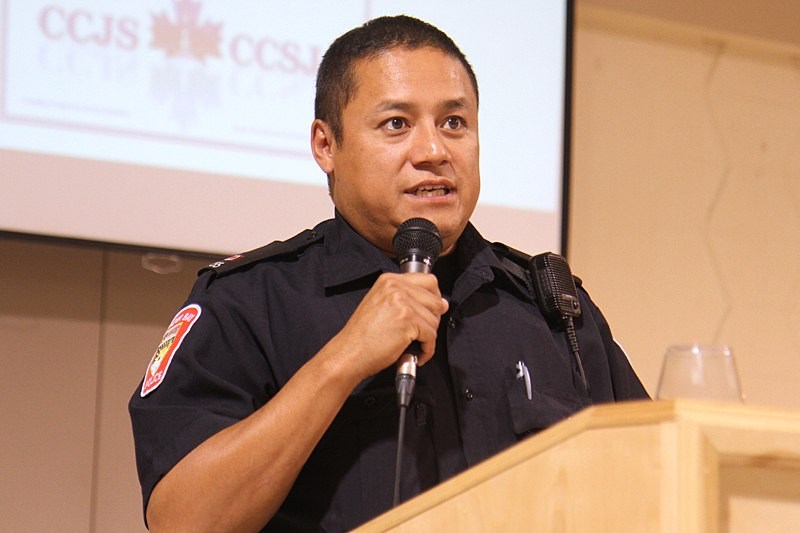Zero reported hate crimes in the city doesn't mean Thunder Bay is free from hate, says one national expert.
What the statistics likely means is there is a lack of reporting.
The Thunder Bay Police Service held a morning training session, followed by an afternoon community presentation on Tuesday at Ka-Na-Chi-Hih with Statistics Canada’s national training officer to focus on hate crime and how to accurately report it.
Warren Silver, the policing services program’s national training officer for Statistics Canada explained that the tracking of hate crime incidents across the country is growing, and said the city’s reporting appears to be incomplete.
“There has been a big initiative for us to collect information on hate crime, so we’ve developed a standard training on hate crime that was developed for police to police to work on trying to get more and better reporting,” Silver said.
“When you see the statistics we have comparing Thunder Bay to other cities across Canada, Thunder Bay has never reported any hate crime since we began collecting this about six years ago. I don’t think anybody believes there is hate happening all over the world except Thunder Bay. I think it’s much more a question that it’s not being reported to police, or police aren’t recognizing it.”
The workshop was spurred by the city’s police service to improve their tracking and reporting of hate crime, and improving trust within the group.
Aboriginal liaisons officer Const. Larry Baxter said it’s important for people to report any cases of hate crime, which are crimes motivated by factors such as race, ethnicity or sexual orientation.
Baxter explained the purpose of the workshop was to show what a hate crime is and to educate the importance of reporting to create an accurate picture of what is happening in the community.
“If we don’t have any victims coming forward, and if we as a police service aren’t identifying it as such, we’re not going to have any statistics,” he said.
“If the perception is the police do care about these types of crimes I believe the trust will grow and we’ll have more cooperation from the public when we need their assistance.”
The training sessions are educating officers to focus on the three aspects of any crime, the incident, perpetrator and the victim.
From there the officers are to look at whether the crime was motivated by hate, and if it is confirmed or suspected they then identify the principle motivation and any further details that contributed to the motive.
Silver, who is a former police officer, said there needs to be a collaborative effort between both police and the general public to start making the reporting of hate crime common.
He equated hate crimes to what domestic violence was 20 years ago, where it was vastly underreported and police were not sure how to deal with it. Now domestic violence has strict procedures and protocols.
“I think a lot of it is outreach to the community, and working with the community groups. I think to get the public to report even the small things to police, even if they aren’t criminal nature, police want to know about this,” Silver said.
Silver is to work with the Nishnawbe-Aski Police Service on Wednesday.
